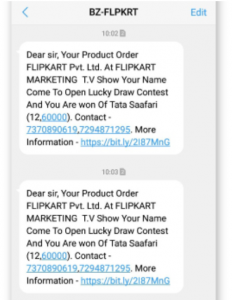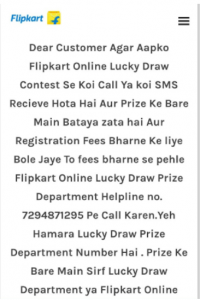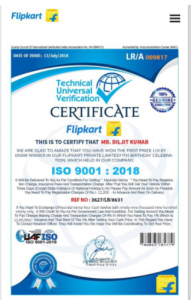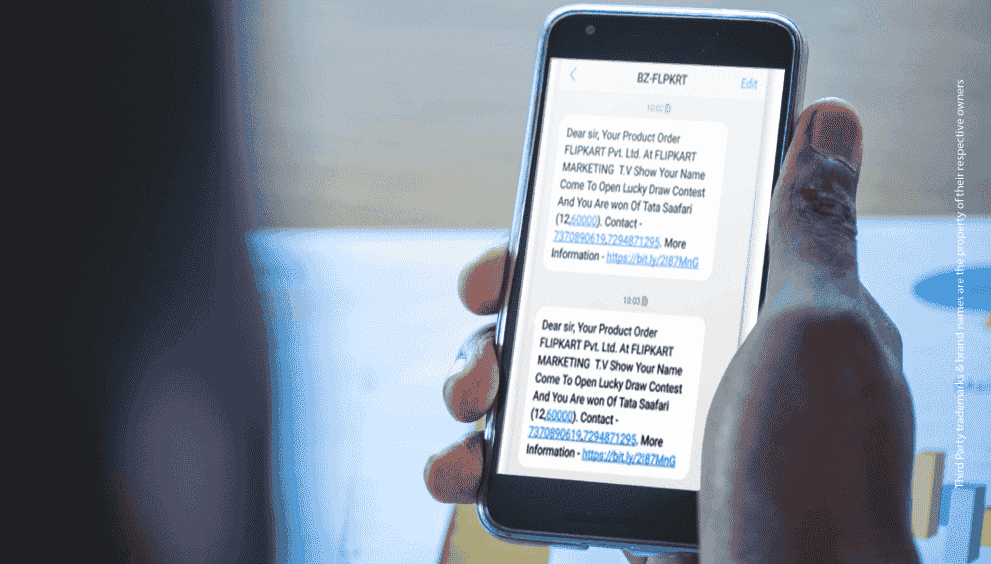



Source: Via SMS, E-mail
You could get a fake message via SMS or any social media or chat apps – including WhatsApp, Facebook Messenger, Telegram, etc. The scammer may also upload a fake invoice or send a message with genuine-looking branding, in order to appear official. This is a growing concern in cyber fraud news and is increasingly linked to online scams in cyber security.
After clicking on the link received via mail or SMS, the victim is redirected to a malicious site. It might ask for personal details here. Such tactics are often seen in the latest cyber frauds in India, with fraudsters typically sending messages to excite customers and lure them into their trap.
The messages often look like this:
-
- “Dear Flipkart customer, congratulations! You have won…”
-
- “Congratulations, Dear customer! You are the lucky winner…”
These are common messages seen in Flipkart scams and Flipkart fraud cases.
These messages also contain text like:
-
- “Click on the link and claim your free gift now!”
-
- “Click here and claim your Rs.10,000 gift card”
Impact
-
- Steal personal details
-
- Use different tactics for further spreading, as seen in other cyber security fraud cases.
Precautions
-
- The best way to deal with such calls is to simply disconnect immediately.
-
- Don’t share details about credit card CVV, PIN, OTP, e-wallet details, bank account number.
-
- Call the official customer support to confirm the “offer” or “prize,” as scammers often use these tactics in Flipkart frauds in India.
-
- Unless you are confident in the sender’s credentials, do not click on any links.
-
- Never share your personal information with unknown people.
-
- Never attempt to call back unknown numbers, as they may be a trap for you.
- Don’t forward the message to your contacts, as this may help spread latest cyber fraud schemes.
